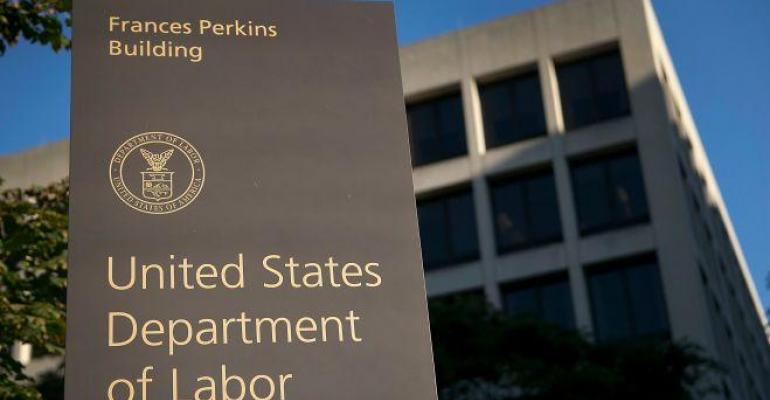Less than two months after the Department of Labor submitted its fiduciary rule for review, the Office of Management and Budget publicly released the proposal Tuesday afternoon.
The proposal was expedited by the OMB after President Barack Obama publicly supported the DOL's efforts in a speech at AARP’s headquarters on Feb. 23. The speed with which the office moved on the proposal prompted some critics to question whether the agency was being thorough in its examination. The rule would require advisors overseeing retirement plans to act under a fiduciary standard, putting client interests ahead of all other considerations when making investment recommendations on accounts covered under the Employee Retirement Income Security Act.
Prior to the official release, there was much speculation throughout the industry as to when the OMB would make its rule proposal public.
Consumer Federation of America’s Director of Investor Protection Barbara Roper said Monday that while the investor protection organization hasn’t received official confirmation on timing, she’s heard "from seemingly reliable sources that Tuesday is the day.”
"I am hearing Tuesday also," says Kent A. Mason, a partner with Davis & Harman who advises industry clients in the retirement savings area. But Mason noted that the public still doesn’t know what is in the rule yet, so it's too early to speculate what the fast-tracked process could mean.
“The current rumor is this week, maybe Tuesday. But no one really knows,” cautions Fred Reish, a securities lawyer with Drinker Biddle & Reath. Industry attendees of meetings with the OMB told Reish that the rule was likely to be out in less than 60 working days, before the end of April.
Investor advocate groups like the CFA have long argued that commissions earned by brokers—who are not legally obligated to act as fiduciaries—incentivize transactions that hurt consumers, like advising clients to roll 401(k)s into IRAs with higher fees and excessive trading.
Industry groups have argued the proposal could limit the public’s access to quality financial advice and suggested that the OMB not fast-track the process and examine the proposal carefully.
"The Department of Labor, if they have truly listened to the industry and members of Congress from both sides of the aisle, should welcome a 90-day process and thorough review at OMB,” Robert Lewis, the Financial Service Institute's vice president of legislative affairs said last month. “Research shows the average OMB review for rules promulgated by the Department of Labor is 117 days – for rules far less controversial. Anything shorter than that could raise serious questions about the review process.”
Once it is public, advocates on both sides of the issue will examine it closely.
“My hope is that some more credible industry representatives will ... judge the rule with an open mind, but I'm not really expecting SIFMA to tone down its opposition,” Roper says, but adds she’s not optimistic. “They have so much invested at this point is stopping this rule, it is hard to imagine that they would suddenly switch gears and engage constructively in the rulemaking process.”
While the industry can make its objections known during the public comment period, it could also be challenged in court, says Daune Thompson, president of Potomac Strategies and senior policy analyst for fi360.
“I suppose a legal brief challenging the adopted rule could claim that an expedited review by OMB was ‘arbitrary or capricious,’’ he says, adding that a release before May 1 would be a turnaround twice as fast as the average review.





